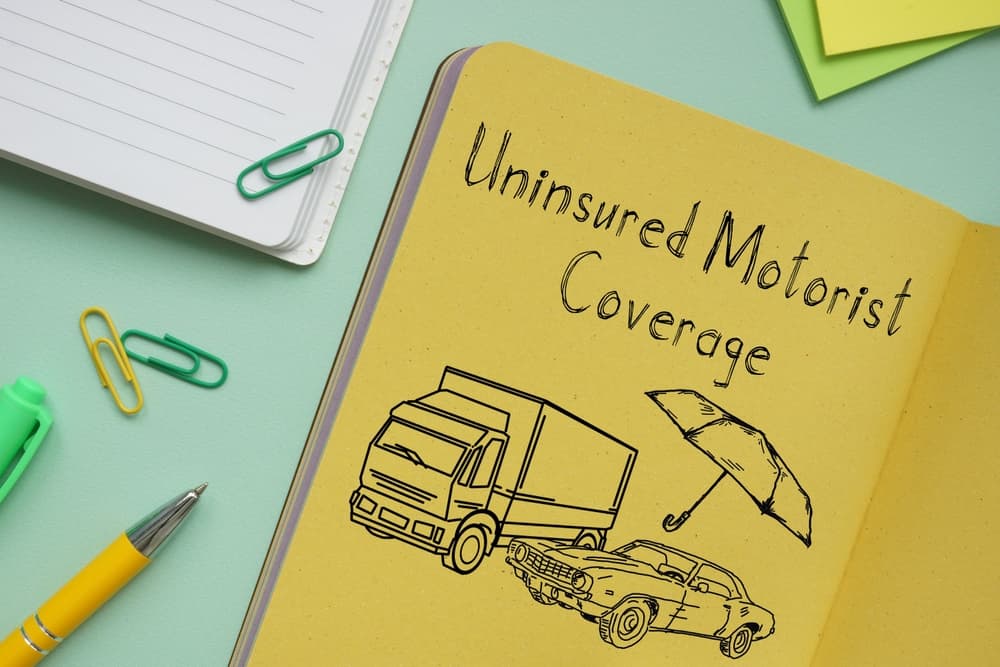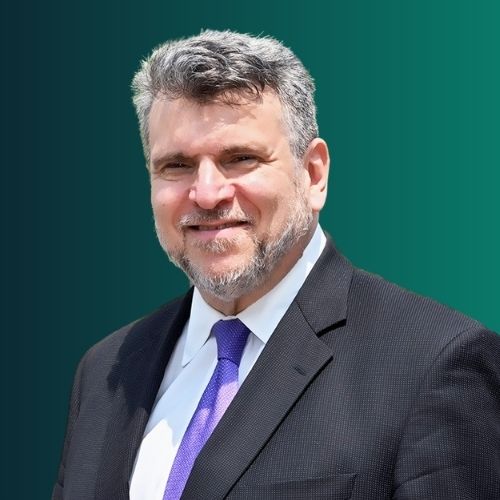
A car accident can cause you to suffer significant financial consequences. While you usually would pursue compensation from the driver at fault for the crash, pursuing a car accident claim may become complicated if the at-fault driver lacks insurance or has minimal liability coverage.
You may pursue financial relief through an uninsured or underinsured motorist claim with your insurance provider. But filing a claim with your insurance company does not mean you don’t need experienced legal counsel.
A car accident lawyer can guide you through the UM/UIM claims process and protect your rights and interests, giving you the best chance to obtain the resources you need for your recovery.
Understanding Uninsured/Underinsured Motorist Coverage
Uninsured/underinsured motorist coverage in auto insurance policies can provide car accident victims with an avenue for financial recovery after they get into an accident caused by a driver without liability insurance or with a policy with coverage limits less than the victim’s losses.
In New York, auto insurance policies must provide uninsured motorist (UM) coverage equal to the bodily injury liability coverage limits purchased by the policyholder. An insured person injured in a car accident can file a UM claim with their insurance provider after suffering injuries in a car accident caused by another driver who doesn’t have insurance.
Policyholders can also purchase optional underinsured motorist (UIM) coverage. An injured auto accident victim may turn to their insurance provider for UIM coverage after suffering severe injuries in a crash caused by a driver with minimal liability insurance coverage.
Although New York requires drivers to purchase liability coverage, drivers only need to purchase coverage limits of $25,000 per person/$50,000 per accident for bodily injuries and $50,000 per person/$100,000 for death.
For accident victims who sustain severe injuries, these coverage limits may not pay for all of a victim’s financial and personal loss. Unfortunately, some drivers break the law by choosing not to purchase insurance or continue driving after their insurance policy has lapsed.
UM/UIM coverage can protect people when they get into accidents with at-fault drivers with minimal or no insurance coverage.
When Can You File a UM/UIM Claim?
A person injured in a car accident may have the right to pursue UM/UIM coverage after the crash under various circumstances. An injured party will typically file a UM claim after suffering severe injuries in an accident caused by a driver who does not have liability insurance (which makes the driver uninsured).
However, an injured person can also file a UM claim after a hit-and-run accident if they cannot identify or locate the at-fault driver who fled the scene. Even if the fleeing driver has liability insurance, insurance companies treat unidentified hit-and-run drivers like uninsured motorists, entitling accident victims to file UM claims.
If you’ve purchased UIM coverage, you can file a claim after suffering severe injuries in an accident. In New York, injured car accident victims typically use personal injury protection coverage to obtain compensation for medical bills and lost earnings. However, when a person suffers a qualifying severe injury, they can pursue compensation for pain and suffering from the at-fault driver.
Severe injuries can exhaust an injured party’s PIP coverage limits, further entitling them to seek financial recovery for additional medical expenses and lost income they incur.
But these losses can quickly exhaust the liability coverage limits of a driver who purchased the minimum coverage required by New York law. When this happens, an injured party can turn to their own insurance policy to seek UIM coverage.
State UM/UIM Laws
New York’s minimum auto insurance requirements include uninsured motorist coverage with policy limits equal to the bodily injury liability coverage purchased by the policyholder. Auto insurers can also tack on underinsured motorist coverage at the same policy limits for an extra premium.
When you get into a dispute with your auto insurance provider over your right to UM/UIM coverage, you may have a breach of contract claim against your provider. The statute of limitations in New York typically gives you six years to file a breach of contract lawsuit.
However, parties to a contract can agree to a different limitations period for a breach claim, and many insurance policies include provisions that shorten the limitations period on a claim for breach of the policy. For example, an insurance policy may state that a claim accrues on the accident date rather than the date that the insurer denies coverage and may require you to file a lawsuit much sooner than six years after your loss.
What to Expect During the UM/UIM Claims Process
After an accident, if you discover that the driver doesn’t have insurance or has minimal liability coverage, contact a car accident lawyer as soon as possible to guide you and protect your interests during the UM/UIM claims process.
Following the crash, gather any evidence from the accident, such as photos/videos, witness statements, or police accident reports, along with medical records of your treatment and any bills, invoices, or receipts for expenses you incurred. Notify your auto insurance company about the accident as soon as possible since your policy may require you to give prompt notice to secure your eligibility for UM/UIM coverage.
Your attorney can prepare and file your UM or UIM claim and handle communications with the insurance adjuster on your behalf to supply any additional information the insurer may need to process your claim. The insurance adjuster will investigate the accident to confirm that the uninsured/underinsured driver bears responsibility for the crash and verify your losses.
If the insurance company accepts your claim, it will offer you a settlement. However, if you believe the insurer has undervalued your claim, you can submit a counter-demand for a higher amount, providing additional documentation if necessary to support your claim. You may also pursue your insurer’s administrative appeals process if available. As a last resort, you might pursue litigation against your insurer in a breach of contract claim.
Financial Recovery Available From UM/UIM Coverage
In a UM/UIM claim, you can recover the compensation you would have the right to pursue from the at-fault driver.
Financial recovery from UM/UIM coverage can include money for:
- Costs of repairs to your vehicle or reimbursement for the value of your totaled car
- Medical treatment and rehabilitation expenses
- Costs of home health care or other support services you need for prolonged or permanent disabilities
- Ongoing and future losses of income
- Physical pain and emotional distress
- Lost enjoyment or quality of life caused by permanent disfigurement or disabilities
The Role of a Car Accident Lawyer in Your UM/UIM Claim

A car accident lawyer can help make the UM/UIM claims process smoother and give you the best chance to recover maximum compensation for your injuries and losses.
First, your lawyer can investigate the car accident to recover evidence proving that the other driver caused the crash, including police accident reports, surveillance/traffic camera footage, eyewitness statements, and accident reconstruction expert reports and testimony. Your attorney can also help you gather records to document your injuries and losses to support your compensation claim.
An attorney can evaluate your eligibility for UM/UIM coverage based on the facts of your case and the terms of your auto insurance policy. They can confirm that the at-fault driver lacks insurance or that you have a higher UIM coverage limit than the other driver’s liability policy limit.
Your car accident attorney can file your UM/UIM claim and deal with the insurance adjuster on your behalf. Having experienced counsel communicate with the insurance company can protect you from the tactics that insurers use to minimize or deny claims.
Even though you’ve filed a claim with your insurance, remember that they have different interests than you. The insurance company will want to pay you as little money as possible and may try to get you to make statements that sound like admissions of fault for the accident. They might comb through your medical history for any signs of pre-existing injuries or degenerative diseases that would allow them to deny your claim.
Your attorney can protect your interests by providing information the insurer needs to process your claim while pushing back against any fishing expeditions for information the insurance company can use to deny or minimize your claim.
Tips for Selecting the Right Car Accident Attorney
Choosing the right personal injury attorney, experienced in handling car accidents cases, can make a difference in the outcome of your UM/UIM claim.
Essential tips for selecting a lawyer to help you pursue a UM or UIM claim include:
- Find lawyers with extensive experience and success handling UM/UIM claims since pursuing UM/UIM coverage may have subtle differences from filing typical liability claims.
- Conduct research and due diligence on prospective attorneys you’ve identified, including finding client testimonials/reviews and checking on an attorney’s certifications and awards.
- Take advantage of free initial consultations with car accident attorneys to ask questions to help you identify attorneys you want to work with.
- Ask about the attorney’s communication style and methods. Find out if they’re available all the time or only during business hours.
- Take stock of how you feel while you’re with the attorney. Do you trust them? Would you feel comfortable sharing intimate details about your medical condition with them? If not, keep looking.
- Make sure you understand the attorney’s fee structure. Most car accident lawyers work on a contingency fee basis, which means they don’t receive a legal fee unless they recover compensation in your case.
Frequent Questions Attorneys Get Asked About UM/UIM Claims
Common questions that car accident victims have about filing UM/UIM claims include:
What Happens if the Police Can’t Find the At-Fault Driver?
In some cases, law enforcement or private investigators can track down an at-fault driver who fled the crash scene, enabling injured parties to pursue legal claims against that driver.
However, when police or investigators cannot identify or locate the at-fault driver, injured auto accident victims can turn to their insurance for UM coverage because insurance companies consider hit-and-run drivers the equivalent of uninsured drivers.
Can I File a UM/UIM Claim When I Have Health Insurance?
When recovering from injuries from a motor vehicle accident, you may find it easier to have your healthcare provider bill your health insurance like you usually would for non-accident care. This means of getting your bills paid avoids fighting with your auto insurance provider in a UM/UIM claim. However, you may need to file a UM/UIM claim after a car accident, even if you have a good health insurance policy.
First, health insurance will not compensate you for lost income if you cannot work or experience a reduced earning capacity due to car accident injuries. UM/UIM coverage can compensate you for those losses after you exhaust your PIP coverage.
Second, some health insurance policies may disclaim coverage or primary liability for medical treatment related to a motor vehicle accident, or doctors may refuse health insurance to treat car accident injuries, requiring you to pursue coverage from auto insurance.
Finally, your health insurance may require you to pay co-pays and deductibles out-of-pocket, whereas UM/UIM coverage usually has no such requirement.
How Does Filing a UM/UIM Claim Affect My Premiums?
People injured in accidents caused by uninsured or underinsured motorists may hesitate to file UM or UIM claims due to worries that filing a claim will increase their insurance premiums.
Filing a UM/UIM claim will not automatically increase your insurance premiums or lead to the insurance company canceling your policy.
However, insurance companies may consider claims filed against your policy as a factor in determining premiums when the policy renews. However, insurers impose much higher premium increases for claims arising from accidents you caused.
Thus, filing a UM/UIM claim, which means the other driver bears fault for the crash, should lead to minimal or no increase in your premiums upon policy renewal.



